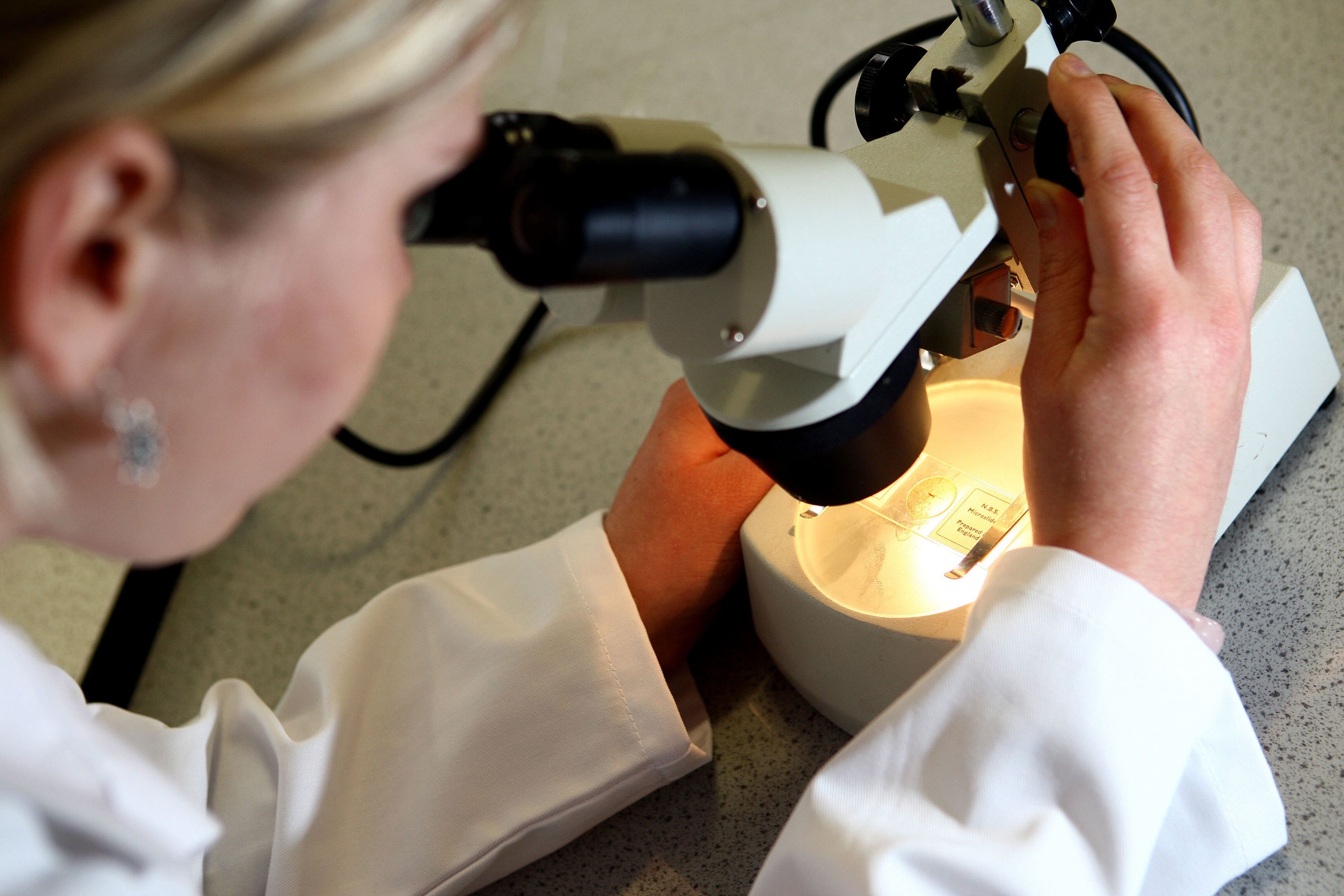Key protein discovery could help with early lung cancer detection and treatment
Scientists hope the finding will lead to further research and a screening programme to provide earlier diagnosis.

Scientists investigating the mechanics of the early stages of lung cancer have identified a new potential treatment which could also help with early detection of the disease.
A study found that levels of a key protein – called TLR2 – in tumours could help predict a patient’s survival chances after being diagnosed with lung cancer.
Researchers used data from human tumour samples to confirm that patients with high levels of the protein in the early stages of lung cancer had increased survival compared with those who had lower levels.
A drug compound that activates TLR2 was tested in mice and was found to reduce tumour growth in the early stages of the disease.
I think these results are really exciting
Experts say the breakthrough could help spot the disease sooner and improve outcomes for patients.
The five-year survival rate from late stage lung cancer is only 6%, compared with 50% when diagnosed earlier.
The research is a collaboration between researchers from the University of Edinburgh, University College London, University of Cantabria in Spain, the Spanish National Research Council and the Mayo Clinic in the USA.
Dr Fraser Millar, clinical lecturer in respiratory medicine at the University of Edinburgh, said: “I think these results are really exciting. Very little is known about the biology of early lung cancer and, by understanding this process more, we have identified a possible new treatment for this devastating disease.
“This project highlights the value of basic science research and how this can be translated into new treatments for patients.”
A group, led by researchers from the University of Edinburgh, discovered that TLR2 helps control some of the body’s defence mechanisms when cancerous mutations occur in cells.
The protein is linked with senescence, a process whereby cells stop growing and secrete a variety of chemicals and other proteins which collectively act as warning signals and defences against cancer.
Senescent cells are present in early lung cancers, but are no longer present in late-stage cancers, suggesting that senescence can prevent cancer progression.
Having identified TLR2’s importance, the team used data from human tumour samples to look at the survival of patients with high levels of the protein in the early stages of lung cancer compared with those who had lower levels.
The team then used a drug known to activate TLR2 in a mouse model of lung cancer and found that the drug reduced lung tumour growth.
Experts hope the findings could lead to research into using senescence and the associated secreted chemicals as part of a screening programme to provide earlier lung cancer diagnosis.
However the team said further research is needed, such as clinical trials to confirm whether the drug is effective in humans.
The study is published in Cell Reports.
It was funded by Cancer Research UK, Wellcome, the Ministry of Science and Innovation of the Government of Spain and the US National Institute on Aging.